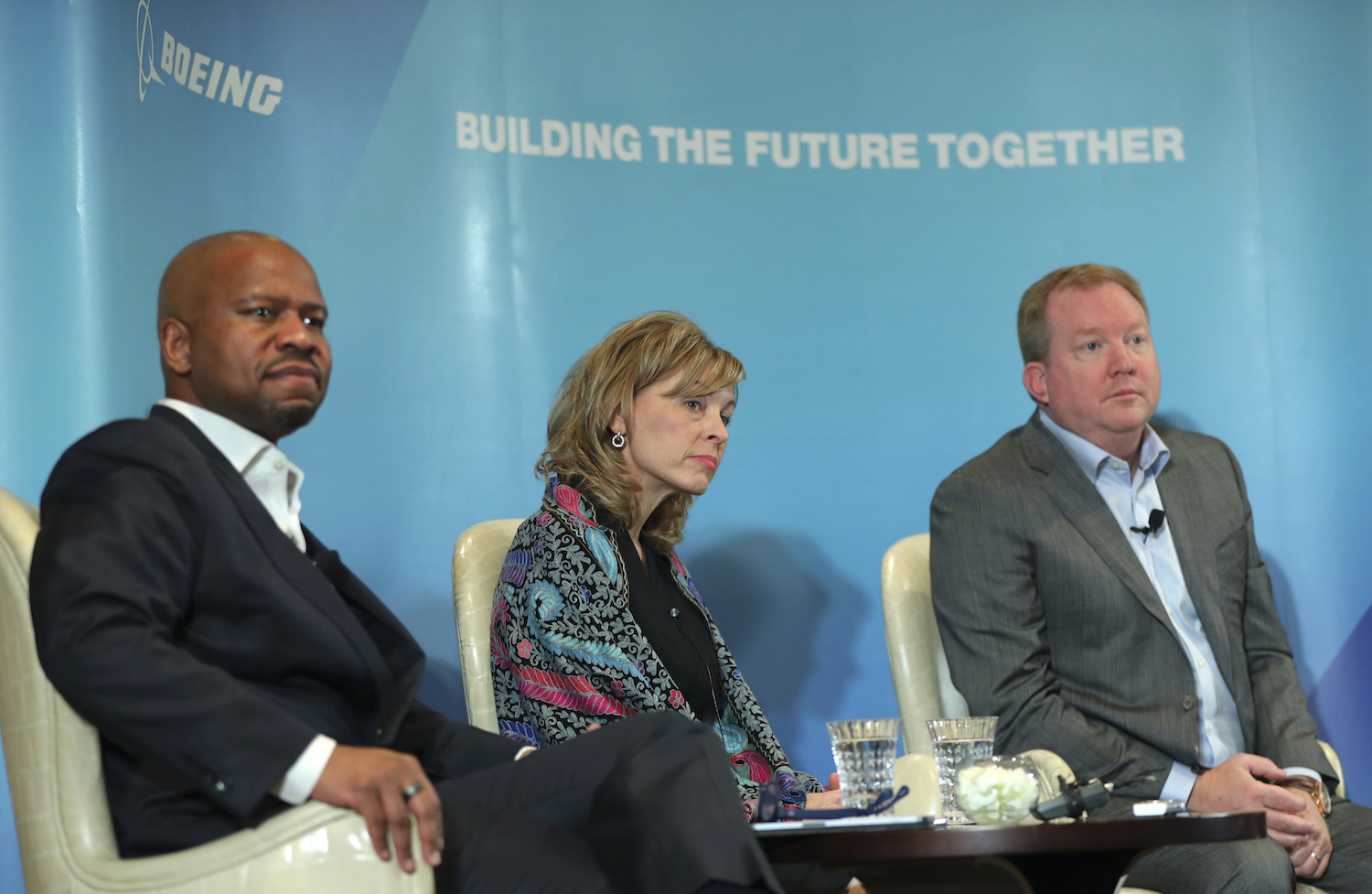
DUBAI: A senior Boeing executive said on Saturday that the company knows it has to re-earn the public’s trust as it works to win approval from US regulators to get its grounded 737 Max jets flying again after crashes that killed 346 people.
Stan Deal, president and CEO of Boeing Commercial Airplanes, said the company’s “number one focus remains safely returning the Max”.
The American manufacturer has spent the past year making changes to flight software that played a role in crashes of two of its 737 Max jets.
Deal said the company knows it has “to restore the confidence of our customers and the flying public in Boeing”.
“We know we got to re-earn that trust,” he said.
Deal, whose division oversees the jet, spoke to reporters in Dubai ahead of the biennial Dubai Airshow, which starts on Sunday and is expected to produce major deals between commercial and military manufacturers and Mideast buyers.
Boeing has customers in the region financially affected by the grounding of the 737 Max, including the budget carrier Flydubai, which has more than a dozen of the jets in its fleet and more on order.
Boeing is working to compensate both its customers and the families of victims who died in the crashes.
Internal Boeing documents have revealed that before the crashes, company employees had raised concerns about the automated flight-control system that played a part in pushing the planes’ noses down until the jets plummeted, as well as the hectic pace of airplane production at Boeing.
Boeing began working on updating the plane’s flight software shortly after last year’s Oct 29 crash of a Lion Air jet off the coast of Indonesia. After the second crash — an Ethiopian Airlines Max that went down near Addis Ababa after takeoff on March 10 - the plane was grounded around the world.
In questioning before US senators last month, Boeing CEO Dennis Muilenburg acknowledged the company “made mistakes, and we got some things wrong”.
Boeing has settled dozens of lawsuits filed by families of passengers killed in the two crashes. Terms of the settlements are being kept confidential at Boeing’s insistence, according to lawyers.
“The number one goal here is safely returning, and the FAA and the regulators around the world will pace the schedule … and we’re fully supportive of that approach,” Deal told reporters in Dubai.
The company expects US Federal Aviation Administration approval in January for a new pilot-training programme that will cover the changes, which would let US airlines resume using the plane early next year, though it could take longer for regulators in other countries to approve the changes.
The FAA, meanwhile, has not laid out a timetable for approving Boeing’s changes.